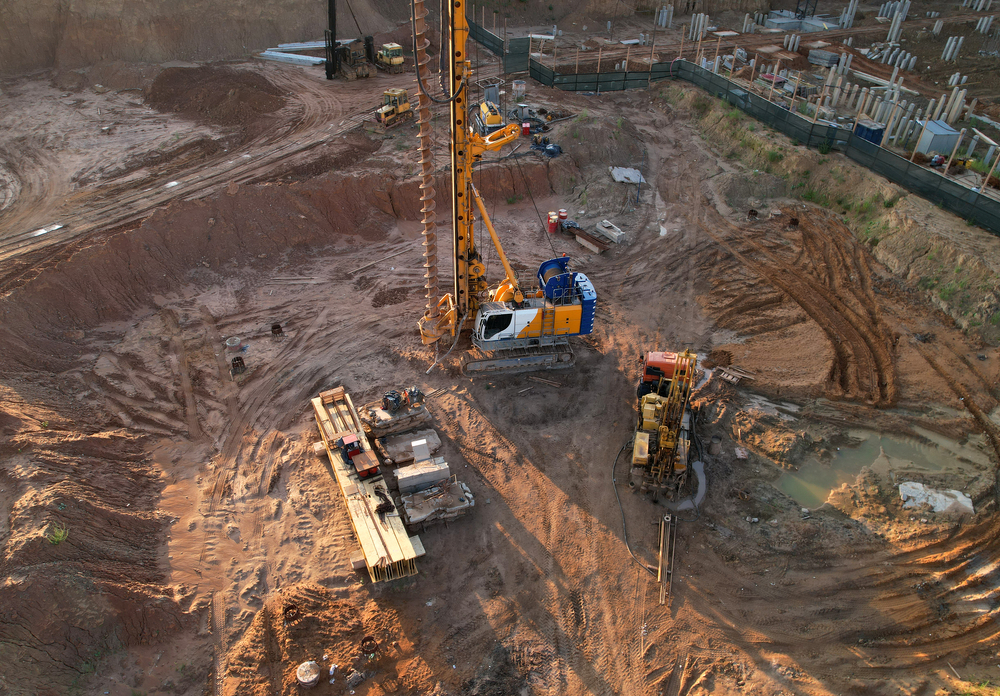The smart Trick of Geotheta That Nobody is Discussing
Wiki Article
Geotheta Can Be Fun For Anyone
Table of ContentsSome Known Details About Geotheta The Single Strategy To Use For GeothetaAbout GeothetaWhat Does Geotheta Do?Getting The Geotheta To Work

They conduct site examinations, accumulate samples, carry out research laboratory tests, and evaluate data to examine the viability of the ground for construction projects - Consulting Engineer. Based upon their findings, geotechnical engineers provide suggestions for structure layout, incline security, retaining structures, and mitigation of geotechnical hazards. They team up with various other professionals, such as architects, structural engineers, and building teams, to guarantee that geotechnical considerations are integrated into the overall job style and application
By examining the habits and residential or commercial properties of soil and rock, they can identify potential geotechnical threats such as landslides, dirt negotiation, or incline instability. Their experience aids protect against failings or mishaps that might threaten lives and building. Right here are some in-depth responsibilities and responsibilities of a geotechnical designer: Website Investigation: Geotechnical engineers conduct website examinations to collect data on subsurface problems.
They interpret the data to comprehend the properties and behavior of the dirt and rock, including their strength, leaks in the structure, compaction characteristics, and groundwater conditions. Geotechnical Analysis and Layout: Geotechnical designers analyze the information accumulated throughout website examinations to examine the stability and suitability of the site for building projects. They perform geotechnical calculations and modeling to evaluate variables such as birthing capability, settlement, incline security, side earth pressures, and groundwater circulation.
Some Known Details About Geotheta
Foundation Design: Geotechnical designers play an essential function in designing structures that can safely sustain the designated framework. They examine the soil problems and load needs to determine the ideal foundation type, such as superficial foundations (e.g., grounds), deep foundations (e.g (https://www.dreamstime.com/ianhammond2191_info)., stacks), or specialized methods like soil improvement. They consider factors such as negotiation restrictions, bearing capability, and soil-structure interaction to create optimum foundation designsThey review building and construction strategies, monitor website activities, and carry out field examinations to validate that the design recommendations are adhered to. If unpredicted geotechnical problems arise, they assess the scenario and supply recommendations for removal or modifications to the design. Threat Assessment and Reduction: Geotechnical engineers evaluate geotechnical hazards and threats connected with the task site, such as landslides, liquefaction, or soil erosion.

Partnership and Communication: Geotechnical designers function closely with various other experts involved in a job, such as architects, architectural engineers, and building and construction teams. Effective interaction and partnership are necessary to incorporate geotechnical considerations right into the overall task style and building and construction process. Geotechnical designers give technical knowledge, solution inquiries, and ensure that geotechnical demands are met.
The Geotheta PDFs
Below are some sorts of geotechnical engineers: Foundation Designer: Structure designers specialize in creating and assessing foundations for structures. They examine the dirt problems, lots needs, and website characteristics to identify the most suitable foundation type and style, such as superficial structures, deep structures, or specialized strategies like heap foundations.They review the factors influencing slope stability, such as soil homes, groundwater conditions, and slope geometry, and establish techniques to avoid incline failings and alleviate dangers. Earthquake Engineer: Earthquake engineers specialize in analyzing and creating frameworks to stand up to seismic forces. They evaluate the seismic risk of a site, evaluate dirt liquefaction capacity, and establish seismic design criteria to ensure the safety and security and strength of structures during earthquakes.
They execute area testing, collect examples, and assess the accumulated data to characterize the dirt residential or commercial properties, geologic developments, and groundwater conditions at a site. Geotechnical Instrumentation Engineer: Geotechnical instrumentation designers concentrate on monitoring and gauging the actions of you could look here soil, rock, and frameworks. They mount and preserve instrumentation systems that monitor variables such as soil settlement, groundwater degrees, slope activities, and structural displacements to analyze performance and provide very early warnings of possible issues.
How Geotheta can Save You Time, Stress, and Money.
They carry out examinations such as triaxial tests, debt consolidation examinations, direct shear examinations, and leaks in the structure tests to gather information for geotechnical evaluation and design. Geosynthetics Designer: Geosynthetics engineers specialize in the style and application of geosynthetic products, such as geotextiles, geogrids, and geomembranes. They use these products to boost dirt stability, enhance inclines, offer drain solutions, and control erosion.They often tend to be investigatory people, which suggests they're intellectual, reflective, and investigative. They are interested, systematic, sensible, analytical, and logical. Some of them are also social, meaning they're kind, charitable, participating, person, caring, handy, empathetic, sensible, and pleasant - Consulting Engineer.
In the workplace atmosphere, geotechnical engineers utilize specialized software devices to execute estimations, produce designs, and analyze information. They prepare records, evaluation job specs, communicate with customers and group members, and coordinate project tasks. The workplace setting provides a helpful atmosphere for research, evaluation, and cooperation with other professionals entailed in the job.
The Basic Principles Of Geotheta
They frequently check out project websites to perform site examinations, evaluate geotechnical problems, and gather data for evaluation. These sees involve taking a trip to different areas, sometimes in remote or difficult surfaces. Geotechnical engineers might perform soil tasting, conduct examinations, and monitor building and construction activities to make sure that the geotechnical facets of the project are being carried out correctly.Geotechnical engineers likewise function in specialized geotechnical research laboratories. Geotechnical research laboratory designers function thoroughly in these atmospheres, taking care of screening tools, running instruments, and taping information.
Report this wiki page